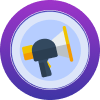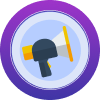Dear Community,
From North America to South America, but where are we going today? Today's destination is none other than the continent: Europe! 🚀
European countries are known for maintaining a healthy work-life balance. This is also confirmed by OECD (Organisation for Economic Co-operation and Development) data, for example. Looking at the ranking of OECD member states in terms of work-life balance, it is clear that European countries are currently leading the way. Click on "Show content" to see the ranking list:

Italy, Denmark and Norway are the "top 3" countries with the best work-life balance (from right to left). Let's take a closer look at the countries:
🇮🇹 Italy (Ranking: 9.4 out of 10)
In Italy, full-time employees spend an average of 16.5 hours on basic needs such as eating or sleeping and leisure activities.🇩🇰 Denmark (Ranking: 8.6 out of 10)
In Denmark, full-time employees spend an average of 15.7 hours on basic needs such as eating or sleeping and leisure activities.🇳🇴 Norway (Ranking: 8.5 out of 10)
In Norway, full-time employees spend an average of 15.7 hours on basic needs such as eating or sleeping and leisure activities.
The OECD average is 15 hours. This means that all countries are well above average.
What is a "good" work-life balance?
Essentially, a “good” work-life balance is about finding a way to balance the stresses of work and life with personal joys, triumphs, moments of delight, and happiness. That means having a good balance of work that earns income and provides meaning, with a life outside of work that is positive and joyful overall could be considered a good work-life balance. As a very basic understanding, this is what we might define as a good balance. - HR Lexicon
What can HR do to help?
Free time is the most important asset that allows people to spend time on their own well-being, family time or personal interests. Long working hours not only mean less time for these areas of life, but are also associated with increased stress and potential effects on health. The challenge is therefore to find a balance between work and private life.
👉 Given the digital age and the diverse repertoire of tools and techniques/ methods, let's get creative and start a discussion around the following question.
HR-Discussion
From your experience, what tools or techniques can contribute to a better work-life balance for employees? Feel free to share from your professional experience. 🙂
As always, we'll put €5 in the money pot for each of your comments! 💰
Have a great start to the week,
Melissa and the Personio Voyager Community Team










